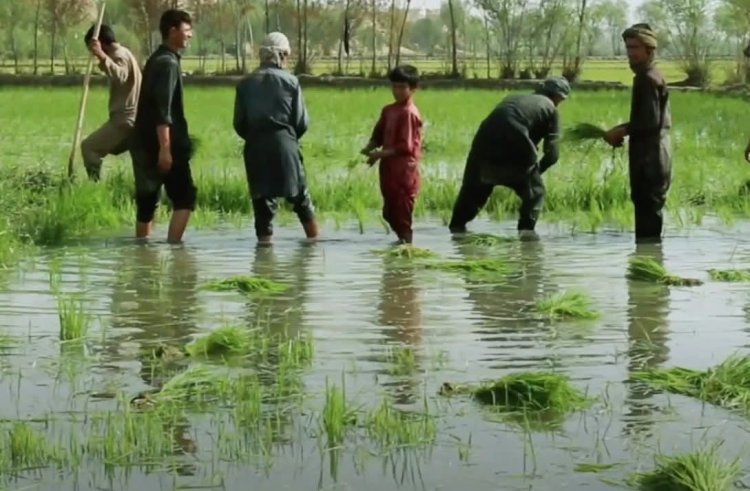Afghanistan’s Rice Fields Wither as Water Crisis Deepens

Drought and climate change are taking a heavy toll on Afghanistan’s rice farmers. In the eastern and northern provinces, water levels in rivers and underground reserves have dropped sharply. Rice, once a staple crop in these regions, has sharply declined.
In Laghman province, most families rely on rice cultivation to sustain their livelihoods. Farmer Ismail says that declining rainfall and water shortages have cut rice farming almost in half.
“Rice is our main crop,” he explains. “In the past, we grew it on a large scale and even supplied other provinces. But over the last two years, water scarcity has reduced our fields dramatically, and some areas have turned barren.”
In Takhar province, Riazullah reports similar struggles.
“Previously, I planted rice on eight jeribs of land and grew alfalfa on a small plot,” he says. “Now, water is so scarce that I can cultivate rice on just two jeribs, and even then it’s extremely difficult to find water.”
Farmers in Kabul’s Shakardara district also point to reduced rainfall and snowfall as key challenges. Ghulam Mohammad says:
“It’s been several years without proper rains or snowfall. Water shortages directly affect our daily work and livelihoods.”
Meanwhile, agricultural expert Khalid Saberi warns that drought and climate change have negatively impacted farming and livestock, forcing some families to migrate.
“Water levels are falling across Afghanistan, harming agriculture,” he says. “Reducing wasteful water use, introducing modern irrigation, and building small check dams could help mitigate the crisis.”
Saberi emphasizes that ongoing low rainfall, rising temperatures, and poor water management threaten the country’s rice production. Without immediate action, Afghanistan’s rice farmers — and the communities that depend on them — could face severe food insecurity.
Afghanistan is among the countries most vulnerable to climate change, and its economy is heavily dependent on agriculture. Reduced rainfall, ongoing droughts, and poor water management could not only lower the production of key crops but also cause severe economic and social impacts, threatening the livelihoods of millions and endangering food security.
